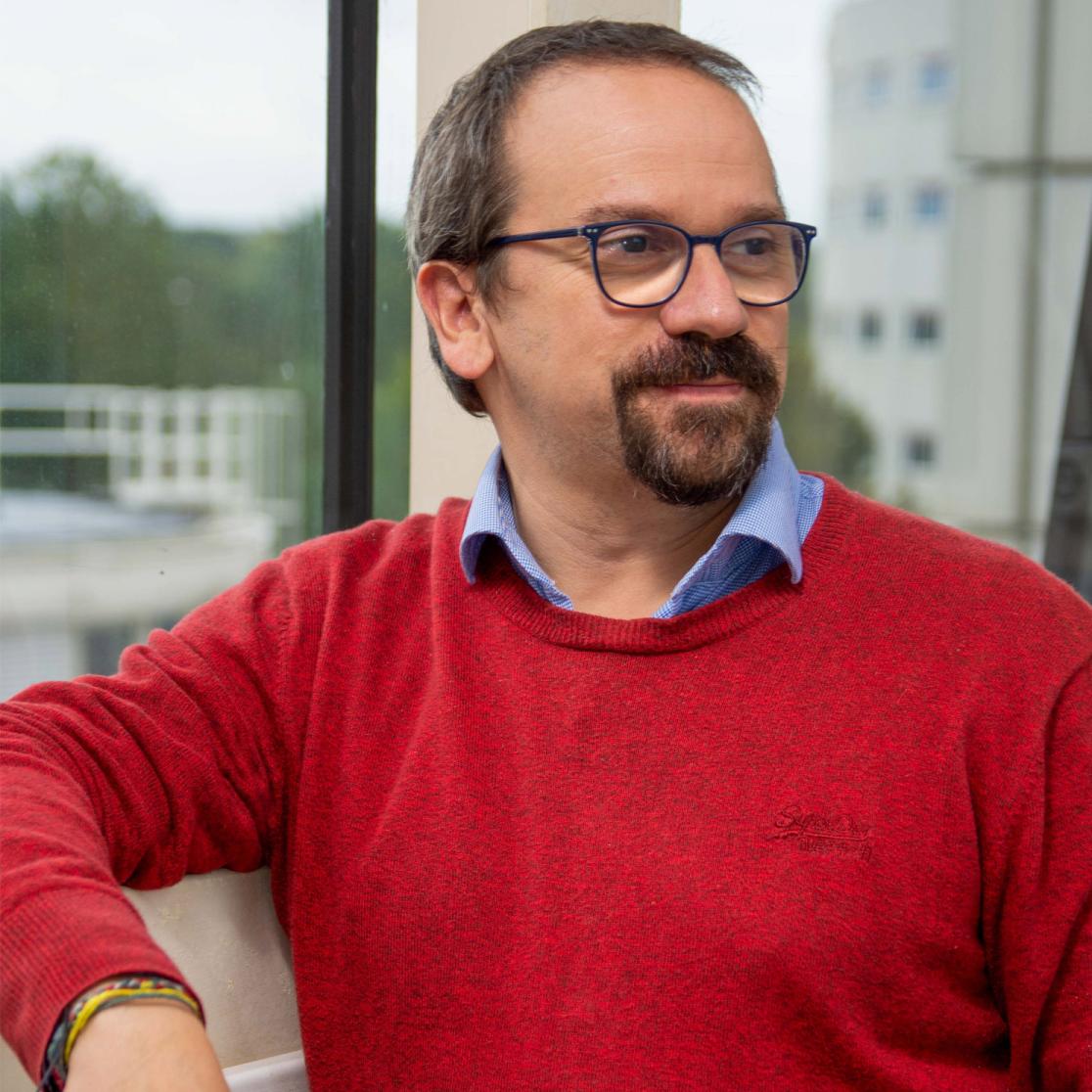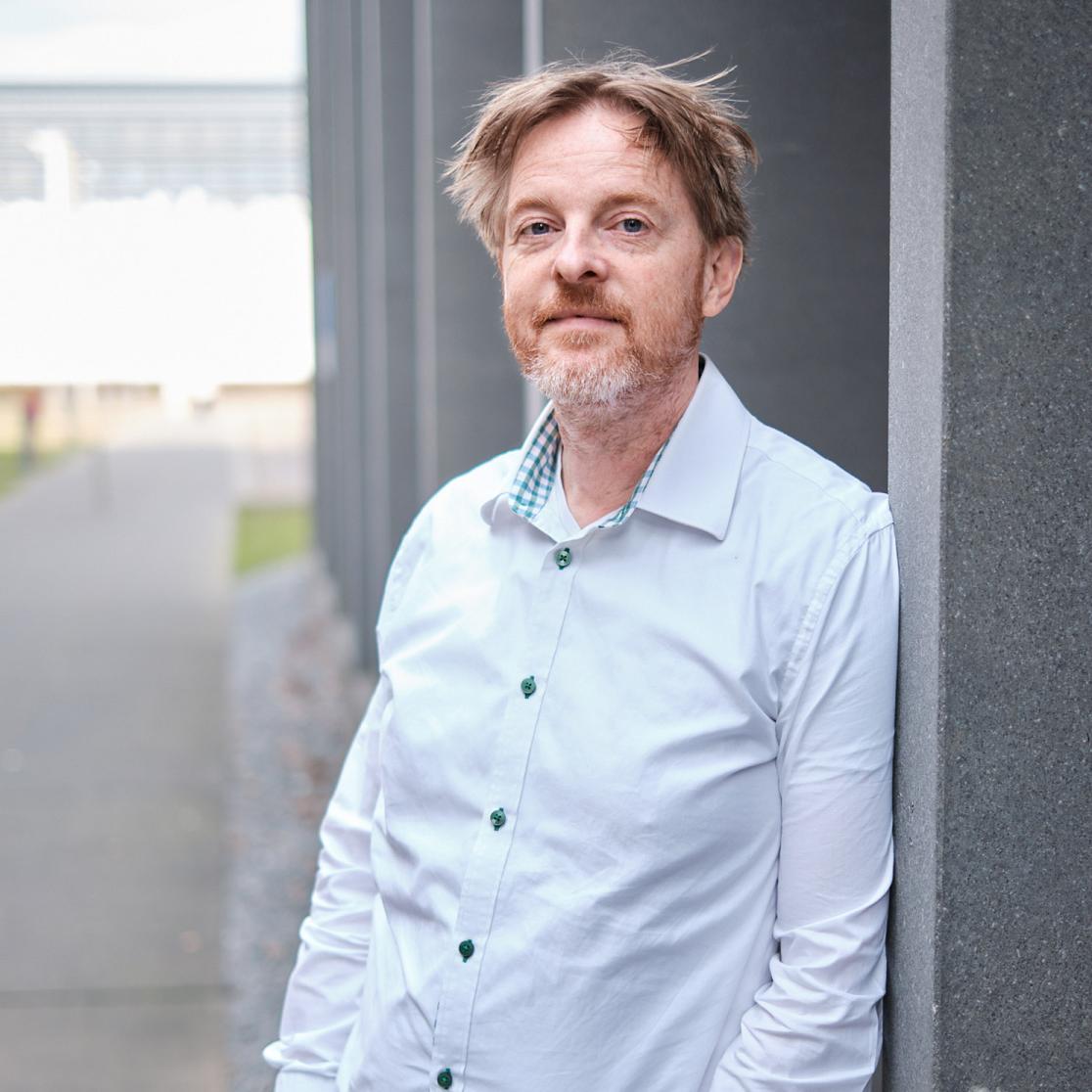Most prestigious European grant to two UM scientists
Two Maastricht University professors are to receive the most prestigious European research grant for individual researchers: an ERC Advanced Grant, worth over €2.5 million. They are Lorenzo Moroni (MERLN) and Alexander Sack (FPN).
Stem cells
Lorenzo Moroni has been working for years on architected biomaterials that can help our bodies to repair themselves. Very importantly, these biomaterials must learn to communicate with our body cells. Not only must our body cells accept and understand that biomaterial, if the cells talk back, the biomaterial must also understand what is meant. A lot of work goes into that. Lorenzo Moroni likes to draw the comparison with a gym, in which - depending on the type of tissue or cell - a different training programme is offered. Until now, Moroni's team mainly trained specific stem cells, which had to grow into a smart bone implant, for example.
In the study for which Moroni is now receiving the Advanced Grant, the team goes a step further. To eventually be able to develop regenerative solutions for a targeted tissue, Moroni is now focusing on training so-called pluripotent stem cells. The main goal here is to be able to repair damage that currently often has to be solved with a transplant. As a proof of concept, in MECCANO he will aim at regenerating a piece of the heart making a specialized ‘gym’ - an architected biomaterial – for each cell type comprising the heart.

Lorenzo Moroni.
Brain and bodily rhythms
Alexander Sack is awarded the European research grant for an in-depth study of how brain and body rhythms interact to optimize neural processing and cognition. We are familiar with heart rhythms, of course, but brain waves also follow a certain rhythm, as do our breathing or activity in the digestive system. Could it be that these rhythms determine what we attend to, what we remember and how much information we can store in our mind? His hypothesis is that we can only optimally function or be “in flow” when our brain and heart, our breathing and gut rhythms are aligned to match the cognitive demand. Compare it to two dancers: if one does not exactly follow the rhythm of the music, it also affects the dance performance of the other.
FLOW represents a fundamental new perspective in experimental brain research, studying the brain not in isolation but as part of complex biological system – with dynamic brain-body interactions between the brain, the heart, and the gut. By studying these dynamic rhythmic interactions between the brain and the body, Sack hopes to eventually get closer to a solution for various neuropsychiatric conditions such as depression, autism, or anxiety disorders, as well as Alzheimer's and Parkinson's diseases. Indeed, it is already known that these disorders are characterized by an atypical coupling between the brain and the body. Sack and his team will develop and test innovative rhythmic non-invasive brain stimulation protocols to modulate body-brain interactions for treating various cognitive and mental disorders.

Alexander Sack.
Also read
-
UM researchers successful in ZonMw Open Competition
Four Maastricht research teams are starting their projects funded with money from the Open Competition of grant provider ZonMw. In addition, a Nijmegen research team has been awarded, which includes Harro van Lente, professor of Science and Technology Studies at Maastricht University (UM).